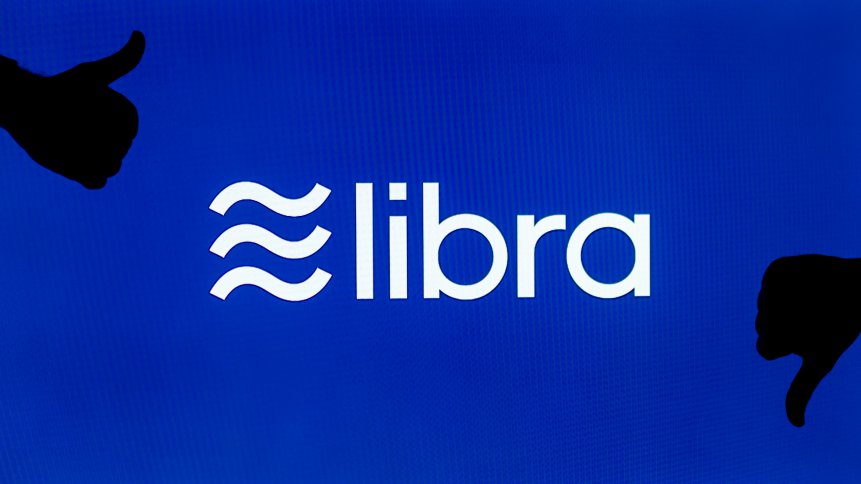Libra struggle highlights Bitcoin ‘raison d’etre’

With a polite nod to its “aspirations”, PayPal jumped the Libra ship last week, setting in motion the departure of other global payment solutions providers including Mastercard, Visa, Stripe, eBay and Mercado Pago— all in a cloud of regulatory uncertainty.
Facebook unveiled plans to launch its own cryptocurrency in June, stating that its currency would allow its users to make payments via its own apps and Whatsapp. At the time, it was confident firms such as Uber and the (now-departed) Visa were to be adopters.
The recent exodus followed ongoing debate around the Facebook cryptocurrency’s regulatory standing— which has drawn particular ire from regulators and politicians in the US— and has served to damage to any mainstream credibility and backing. But things just keep getting worse.
Yesterday, a report from the G7 group— the international economic organization representing the world’s seven largest economies— said stablecoins (cryptocurrencies designed to minimize price volatility) could pose a risk to the global financial system.
According to the Financial Times, a letter attributed to Randal Quarles, head of the global Financial Stability Board, said “regulatory gaps” in regard to stablecoins, of which Libra would be one, “should be assessed and addressed as a matter of priority.”
Concerns from the FSB, which represents the world’s largest financial centers, are fundamentally centered on a fear that stablecoins will become a substitute for domestic currencies.
This, it said, could result in financial instability, a lack of consumer and investor protection, data privacy issues, money laundering, terrorist financing, loss of fair competition, cybersecurity issues and tax evasion.
According to the statement from Quarles, the FSB will sit to consult on regulatory solutions next April, with final proposals for global adoption to come in July 2020. However, the report also noted that “addressing such risks” as those above, is not a guarantee of approval from regulators.
Building a modern, low-friction, high-security payment network that can empower billions of financially underserved people is a journey, not a destination. This journey to build a generational payment network like the Libra project is not an easy path.
— Libra (@Libra_) October 4, 2019
According to the FT, sources close to Libra said Friday’s withdrawals were “sealed” when it emerged that Facebook founder, Mark Zuckerberg, would be testifying on the project in Congress. It’s also said that Visa, Stripe, and Mastercard received warnings from the Senate banking committee that their businesses would come under increased regulatory scrutiny if they remained involved.
On the storm that Libra has weathered in the months since its announcement, some have questioned whether the regulatory controversy will have affected, or detracted from already divisive opinions on cryptocurrencies at large.
YOU MIGHT LIKE

Crypto vs cash – cash wins every time, for now
Speaking to TechHQ, founder and CEO of BaseTwo and PayMachine, Oliver Gale, said Libra “only bolsters the perception and reality that is Bitcoin and other highly decentralized, public and permissionless cryptocurrencies.”
Libra, he said, won’t compete with Bitcoin’s “censorship-resistant” digital cash, which has survived over the last decade exactly because it has “no federation of members who can be targeted, censored or coerced into leaving the network.”
Meanwhile, Alex Karasulu, Founder and CEO of Optdyn agreed, adding that the issues highlighted “Bitcoin’s raison d’etre”— that it has no institutional basis and no intermediaries, and showed “just how high regulatory hurdles have become for big institutional initiatives […]”
Today (October 14), Libra hosts its first board meeting in Geneva, with the 22 companies remaining in its consortium, now comprising just one payment provider, PayU, and a 20 percent cut from its original funding, with each company expected to fork out US$10 million each.
With the loss of key payment technology and solutions partners, Libra has lost vital support struts and now has limited ability to scale to a mass market. Many commentators believe these circumstances and continued regulatory pressure spell the end of the project before it’s even begun.
Commenting on the news of key partners departing, Libra’s co-creator David Marcus urged people not to be “reading the fate” of the cryptocurrency, adding, “in a way, it’s liberating.”
I would caution against reading the fate of Libra into this update. Of course, it’s not great news in the short term, but in a way it’s liberating. Stay tuned for more very soon. Change of this magnitude is hard. You know you’re on to something when so much pressure builds up.
— David Marcus (@davidmarcus) October 11, 2019









